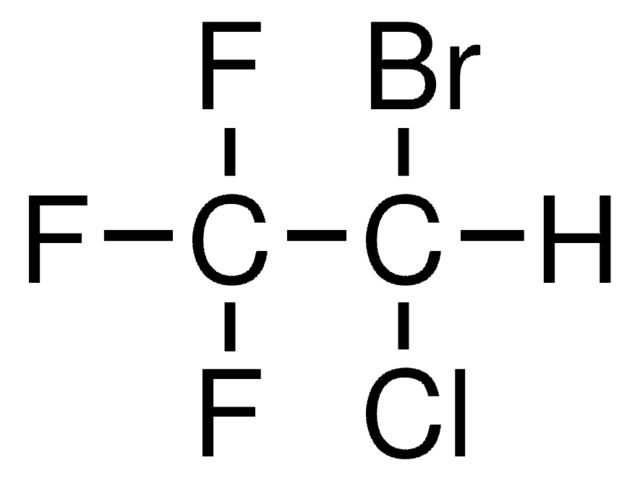Wszystkie zdjęcia(1)
Kluczowe dokumenty
K4002
Krebs-Ringer Bicarbonate Buffer
With 1800 mg/L glucose, without calcium chloride and sodium bicarbonate, powder, suitable for cell culture
Synonim(y):
Bicarbonate Buffer Solution, Krebs Buffer, Krebs-Ringer Solution
Zaloguj sięWyświetlanie cen organizacyjnych i kontraktowych
About This Item
Kod UNSPSC:
12161702
NACRES:
NA.75
Polecane produkty
Poziom jakości
Formularz
powder
metody
cell culture | mammalian: suitable
pH
6.1-6.7
rozpuszczalność
water: 9.5 g/L, clear
temp. przechowywania
2-8°C
Opis ogólny
Krebs-Ringer Bicarbonate Buffer acts as a salt solution and plays an essential role in tissue culture. A salt solution provides the cells with water and inorganic ions. It also helps in maintaining the osmotic balance and ideal pH in the medium. This bicarbonate buffered isotonic saline contains magnesium, potassium, sodium, and phosphate ions.
Zastosowanie
Krebs-Ringer Bicarbonate Buffer has been used:
- as a wash buffer for the preparation of mice primary adipocytes and lipolysis assay
- in the pre-perifusion for islet viability and functionality studies
- in pituitary bioassay
Ilość
Formulated to contain 9.5 grams of powder per liter of medium.
Rekonstytucja
Supplement with 1.26 g/L sodium bicarbonate.
Ta strona może zawierać tekst przetłumaczony maszynowo.
Kod klasy składowania
11 - Combustible Solids
Klasa zagrożenia wodnego (WGK)
WGK 1
Temperatura zapłonu (°F)
Not applicable
Temperatura zapłonu (°C)
Not applicable
Wybierz jedną z najnowszych wersji:
Masz już ten produkt?
Dokumenty związane z niedawno zakupionymi produktami zostały zamieszczone w Bibliotece dokumentów.
Klienci oglądali również te produkty
Bidisha Dasgupta et al.
European journal of immunology, 38(12), 3499-3507 (2008-11-11)
When leukocytes cross endothelial cells during the inflammatory response, membrane from the recently described lateral border recycling compartment (LBRC) is selectively targeted around diapedesing leukocytes. This "targeted recycling" is critical for leukocyte transendothelial migration. Blocking homophilic PECAM interactions between leukocytes
Guangrui Yang et al.
PloS one, 7(8), e38117-e38117 (2012-08-18)
Compelling evidence from both human and animal studies suggests a physiological link between the circadian rhythm and metabolism but the underlying mechanism is still incompletely understood. We examined the role of PPARγ, a key regulator of energy metabolism, in the
Sandra E Pineda-Sanabria et al.
Journal of molecular and cellular cardiology, 92, 174-184 (2016-02-09)
One approach to improve contraction in the failing heart is the administration of calcium (Ca(2+)) sensitizers. Although it is known that levosimendan and other sensitizers bind to troponin C (cTnC), their in vivo mechanism is not fully understood. Based on
Erika Chelales et al.
Scientific reports, 11(1), 20700-20700 (2021-10-21)
Ethanol provides a rapid, low-cost ablative solution for liver tumors with a small technological footprint but suffers from uncontrolled diffusion in target tissue, limiting treatment precision and accuracy. Incorporating the gel-forming polymer ethyl cellulose to ethanol localizes the distribution. The
Heng Xu et al.
Synapse (New York, N.Y.), 61(3), 166-175 (2006-12-08)
Previous studies established that Tyr-D-Ala-Gly-N-Me-Phe-Gly-ol (DAMGO) and (2S,4aR,6aR,7R,9S,10aS,10bR)-9-(Benzoyloxy)-2-(3-furanyl)dodecahydro-6a,10b-dimethyl-4,10-dioxo-2H-naphtho-[2,1-c]pyran-7-carboxylic acid methyl ester (herkinorin) are fully efficacious mu-agonists. Herkinorin (HERK), unlike DAMGO, does not recruit beta-arrestin and promote mu-receptor internalization, even in cells that over express beta-arrestin. We hypothesized that chronic HERK
Protokoły
Powdered media and salt mixtures are extremely hygroscopic and should be protected from atmospheric moisture.
Nasz zespół naukowców ma doświadczenie we wszystkich obszarach badań, w tym w naukach przyrodniczych, materiałoznawstwie, syntezie chemicznej, chromatografii, analityce i wielu innych dziedzinach.
Skontaktuj się z zespołem ds. pomocy technicznej











